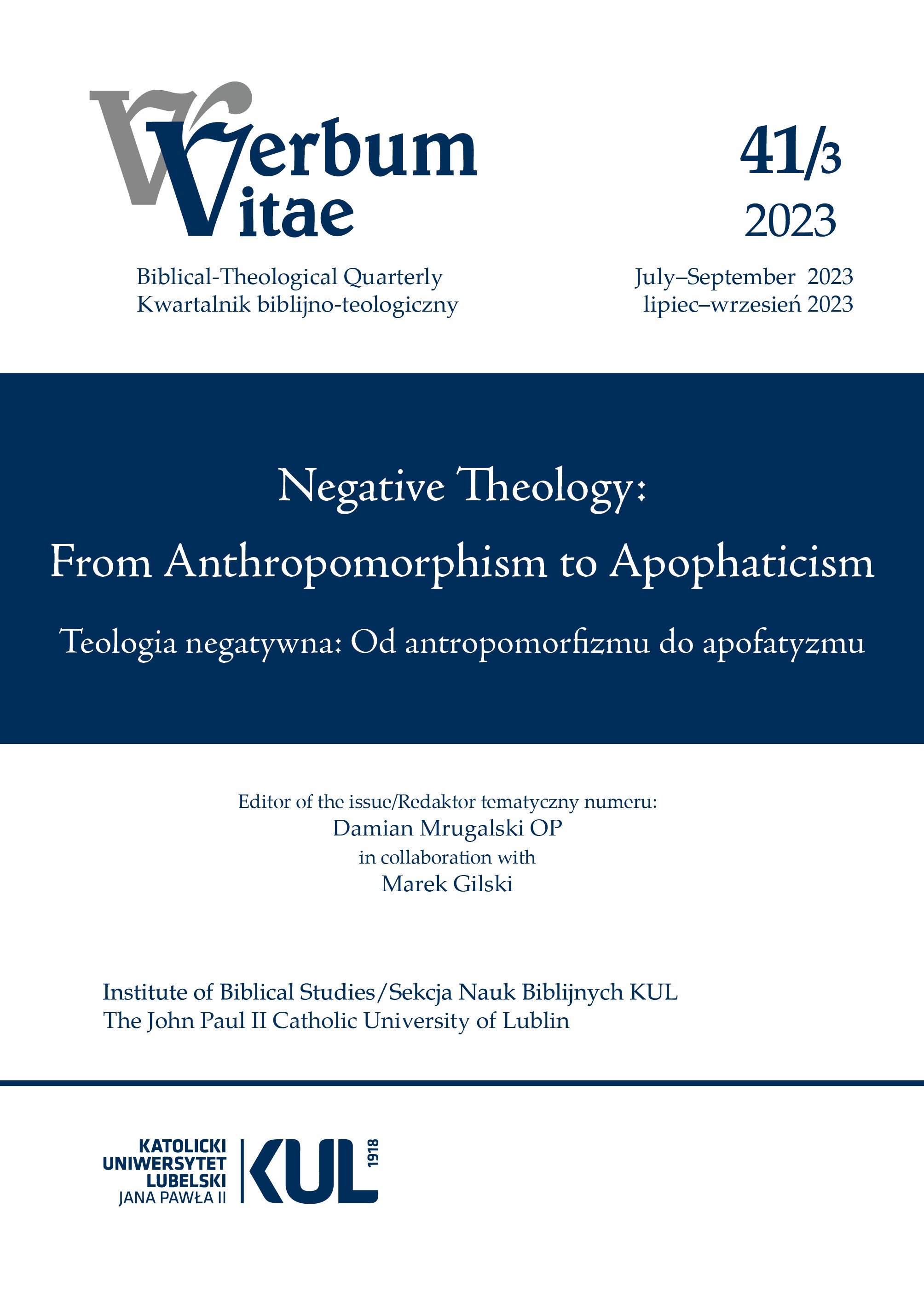The Platonic-Biblical Origins of Apophatic Theology: Philo of Alexandria’s Philosophical Interpretation of the Pentateuchal Theophanies
The Platonic-Biblical Origins of Apophatic Theology: Philo of Alexandria’s Philosophical Interpretation of the Pentateuchal Theophanies
Author(s): Damian MrugalskiSubject(s): Christian Theology and Religion, Theology and Religion
Published by: Katolicki Uniwersytet Lubelski Jana Pawła II - Wydział Teologii
Keywords: apophaticism; negative theology; mysticism; Philo of Alexandria; Moses; Exodus; theophanies; Middle Platonism; Neoplatonism; Hellenistic Judaism; allegorical exegesis; Old Testament exegesis; patristi
Summary/Abstract: This article examines Philo’s philosophical interpretation of the three theophanies in Exodus, which would, centuries later, continue to be considered by the great thinkers responsible for developing negative theology, such as Gregory of Nyssa and Dionysius the Areopagite. Although Exod 33:11 clearly states that the Lord spoke to Moses face to face, as if someone were to speak to his own friend, according to Philo, the lawgiver neither saw the face of God, nor learned the proper name of God, nor was he able to comprehend the essence of God. These very statements became the inspiration for later apophaticism. The present article seeks to establish to what extent Philo’s theses were influenced by Plato’s philosophy or by later Middle Platonism, and to what extent Philo, by commenting allegorically on the Pentateuch, becomes the initiator of new ideas hitherto unknown in philosophical discourse. In the course of the analyses, three great questions of apophatic theology are discussed: 1. the unnameability of God; 2. the unknowability of God’s essence; and 3. the knowability of God’s nature by grace.
Journal: Verbum Vitae
- Issue Year: 41/2023
- Issue No: 3
- Page Range: 499-528
- Page Count: 30
- Language: English

